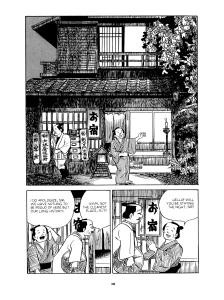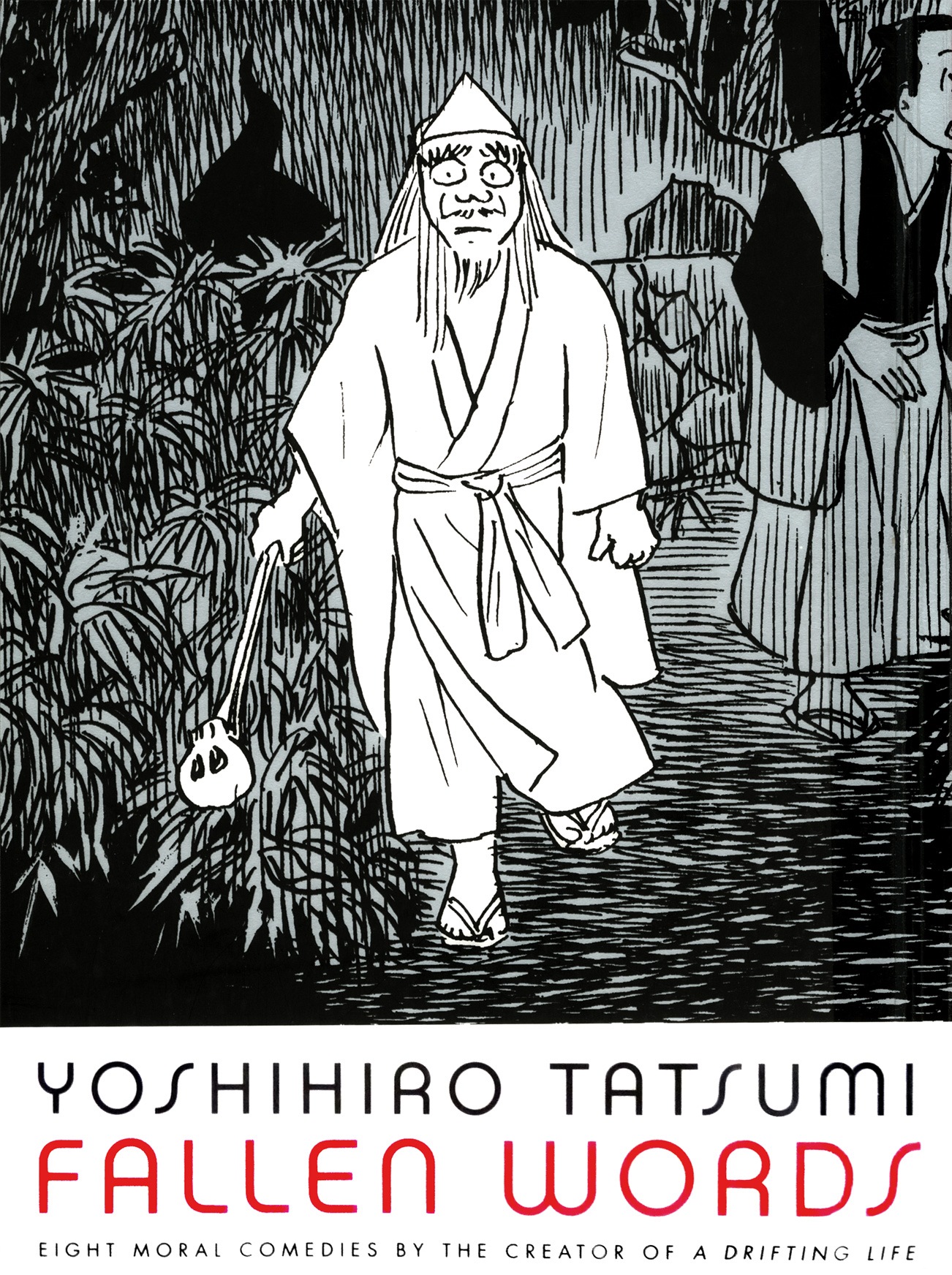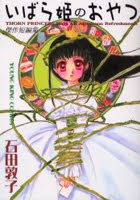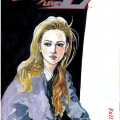Does a manga count as ‘alternative’ if it actually makes sense and isn’t weird at all? 😀 Or should I just keep my mouth shut and be grateful that, unlike the other stuff Drawn & Quarterly has presented, Fallen Words by Yoshihiro Tatsumi is a quick, simple and funny read?
Yoshihiro Tatsumi’s epic memoir A Drifting Life was published in 2009 to overwhelming acclaim, garnering prestigious awards around the world, landing on The New Times “graphic books” best-seller list, and inspiring a feature-film adaptation. For his follow-up, Tatsumi shifted gears dramatically, finding inspiration in the centuries-old Japanese storytelling tradition of rakugo, or “fallen words.” By fusing this comedic, performance-based art form with the visual language of manga, Tatsumi proved that, at the age of seventy-five, he is still one of the medium’s foremost innovators. Humorous, provocative, and thoroughly unpredictable, Fallen Words is a deceptively lighthearted look at the moral quandaries of life and death.
Yes, that’s the secret behind its readability – Fallen Words is simply manga retellings of age-old Japanese folk stories, so to speak. Most of them are funny, a few of them are thought-provoking, and a saddening number of them just revel in the depravity and moral decadence of the Edo Period. It’s not Tatsumi’s fault I suppose, since he is merely retelling stories that have been told and retold thousands of times over hundreds of years. But still the glorying in immorality is sad to watch.
 “Although they know God’s righteous decree that those who do such things deserve death, they not only continue to do these very things but also approve of those who practice them.” (Romans 1:32 NIV). And so it is with Fallen Words, where 3 out of the 8 stories portray the deliberate destruction of innocence as a positive and even amusing occurrence of no great lasting consequence. Pathetic.
“Although they know God’s righteous decree that those who do such things deserve death, they not only continue to do these very things but also approve of those who practice them.” (Romans 1:32 NIV). And so it is with Fallen Words, where 3 out of the 8 stories portray the deliberate destruction of innocence as a positive and even amusing occurrence of no great lasting consequence. Pathetic.
What about the other 5 stories? Those were really good, to give credit where credit is due. Some like “The Inkeeper’s Fortune” and “New Year Festival” were happy, lighthearted affairs, and “Escape of the Sparrows” actually made me laugh out loud. Others like “The God of Death” and “Shibahama” were a little more serious, and they’re the ones that look at the moral quandaries of life and death. I can see myself telling the stories to my younger nephews and nieces, with a few minor tweaks here and there.
I must say I really liked Yoshihiro Tatsumi’s style of art as well. Bold lines, simple art that nevertheless contains lots of details. The stark black and white shading with minimal of tone makes the manga feel super modern and yet super old at the same time – I really got the “life in old Edo” feel from it. I really don’t know how he did it, but the art blends with the manga world and moves the whole thing along so effortlessly you wouldn’t even know they were originally ‘rakugo’ stories to begin with.
Honestly I’d like to recommend Fallen Words to anyone who likes comedy manga, especially anyone who is interested in older Japanese culture as well, but the three bad stories “Fiery Spirits”, “Making the Rounds” and “The Rooster Crows” left a rather bad taste in my mouth. So I guess if rampant immorality doesn’t bother you then you’re in luck. For my part, hmm… maybe I’ll cut those pages out…




